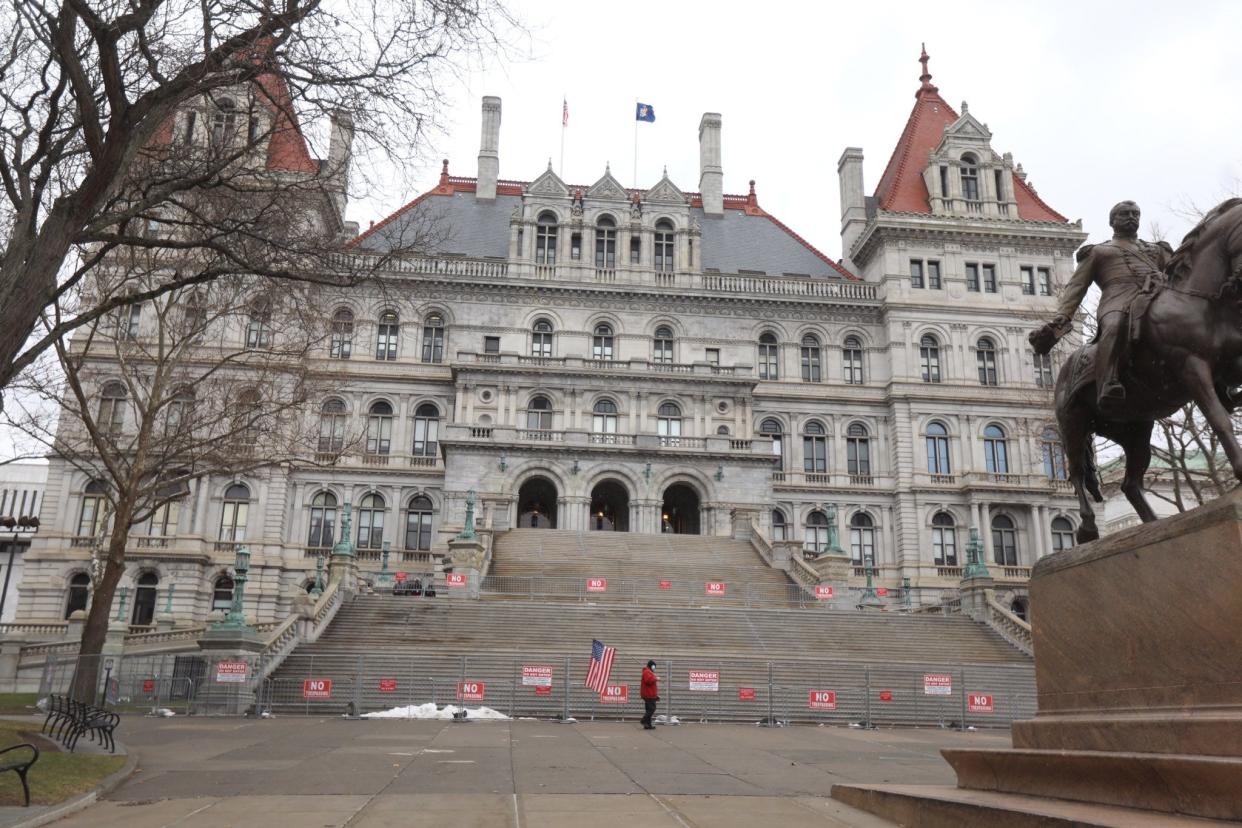Annoyed about too much big money in politics? New York workers can counter corporate influence in elections in 2024
In New York, a new reform promises to deliver for workers: small donor public campaign financing. The state’s new program, now available for candidates in the 2024 state legislative elections, is designed to boost the voices of everyday voters in election campaigns by multiplying the value of their small donations. It offers workers the chance to push their priorities to the top of a political agenda that for years has been dominated by big business and wealthy individuals. Our state’s leaders must ensure that it’s fully funded with $114.5 million in the FY 2025 state budget.
Communications Workers of America, District 1 represents nearly 145,000 workers belonging to almost 200 CWA local unions in New York, New Jersey, New England, and eastern Canada. Our members work in telecommunications, healthcare, the public sector, higher education, social work, printing, publishing, newspapers, broadcasting and many other fields. Like many unions who fought hard to win public financing of elections, we represent a broad cross-section of working-class New Yorkers who deserve a stronger voice in government.
For years, our members fought alongside other grassroots organizations to counter the dominant sway of big money in New York. We won that fight in 2020 when our state’s leaders enacted the Public Campaign Finance Program, the strongest campaign finance reform enacted anywhere in the country.

This program addresses a huge influence imbalance in our state. In 2022, small donors (giving $250 or less) were responsible for only 11 percent of campaign giving in New York state elections. In fact, the 200 largest donors in 2022 outspent all 206,000 small donors. Worse still, deep-pocketed contributors often come from other states entirely, influencing races they can’t even vote in: In 2018, out-of-state donors gave nearly three times more than all small-donor New Yorkers combined, and close to 90% of that money came in donations of $1,000 or more.
When corporate interests and the very wealthy enjoy outsized influence, workers suffer. We’ve seen large employers use their political clout to kill promising, pro-worker legislation. New York’s small donor matching program can help reverse that trend and ensure that working families are represented in the election process. In New York City, where small donor matching is already in effect, data shows that donors to city candidates come from neighborhoods that are more racially and socioeconomically representative of New York City than donors to State Assembly candidates, who don’t have access to public financing.
Crucially, small-donor public financing also empowers working New Yorkers to run for elected office themselves. Too often, people without access to wealthy donor networks struggle to break into politics. Small donor matching changes that equation by increasing the value of community networks of small-dollar contributors, making it easier for new candidates who understand the needs of their district to run for office.
An example from Connecticut shows what a difference this can make. The state’s public campaign finance program was first used in 2008. Since then, two of the last four Speakers of Connecticut’s House of Representatives have been former union leaders, and the state has passed major worker protections — including an increase to the minimum wage tied to inflation and bans on captive audience meetings and other anti-union tactics.
Labor unions across the country have demonstrated their power in recent years — during “Striketober” in 2021, around 25,000 workers struck across the country, including 2,000 healthcare workers at Mercy Hospital in Buffalo. Screenwriters and actors, auto workers, and UPS drivers have secured major victories for workers through collective bargaining. At the same time, states across the country — Minnesota, Washington, and Maryland, among them — have enacted various measures to make it easier for workers to organize and bargain.
As working New Yorkers are speaking up against corporate interests on the job, we must also address their undue influence on our politics. This year, state lawmakers must ensure that this transformative program is fully funded in this year’s budget. New York’s workers deserve nothing less.
Dennis Trainor is the Vice President of the Communications Workers of America, District 1.
This article originally appeared on Rockland/Westchester Journal News: New York workers can counter corporate influence in elections in 2024
